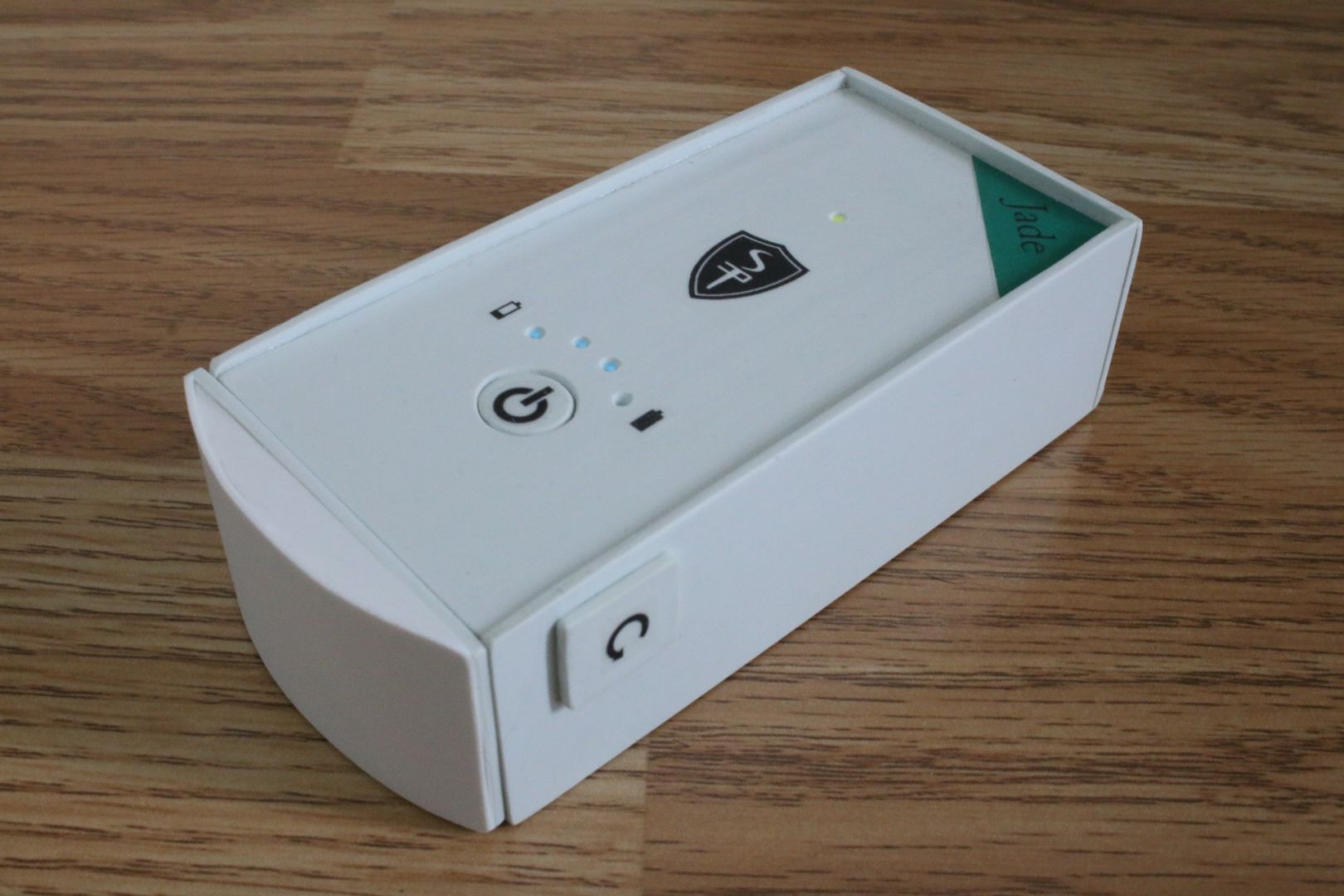A central concept in the work of the Sentinel Project is the importance of security. Nowhere is this more relevant than ensuring the safety of individuals who work with us or contribute to our field operations. Because those who assist conflict prevention often face hostility and violence for their efforts it was important that they have a secure method to disseminate information, (1) through wireless means in areas with diminished communications infrastructure, (2) anonymously and, (3) across multiple platforms or operating systems.
One of our responses to this challenge is Jade, a prototype of a secure transient network device. It allows people to set up temporary, protected, offline wireless networks in order to exchange files or communicate anonymously. The network only ever exists when the device is powered up, either by its on-board battery or plugged in via micro-USB, and only within a 30-40 foot radius. This means that only those individuals with the access key can communicate and share data entirely through this temporary network. This avoids more easily traceable methods of communication such as phone calls, SMS (text) messages or e-mail. It also does not need to connect to a computer or other device because it has its own on-board data storage. Users could theoretically communicate while in separate restaurants in separate buildings and it can also act as a ‘dead drop’ where an individual simply walks through the network area and deposits a sensitive file onto the device anonymously without stopping. It works in conjunction with very standard mobile apps and computer software.
We hope to begin testing the system in the coming months with an eye towards deploying it in our field operations.

